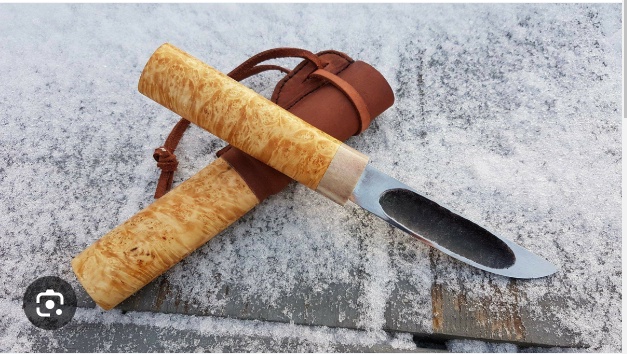Introduction: At the heart of every Yakut knife lies its blade, forged from steel that has been carefully selected for its strength, durability, and performance characteristics. From ancient times to the present day, Yakut artisans have drawn upon a range of steel alloys to create blades that embody the spirit of their culture and craftsmanship. Let's delve into the steels commonly used in forging Yakut knives, exploring their properties and significance in the art of blade making.
- Carbon Steel: Carbon steel is one of the oldest and most traditional materials used in Yakut knife making. Renowned for its toughness, edge retention, and ease of sharpening, carbon steel blades have been a staple of Yakut craftsmanship for centuries. Carbon steel contains iron and carbon as its primary alloying elements, with carbon content typically ranging from 0.5% to 1.5%. The addition of carbon increases the hardness and strength of the steel, making it well-suited for cutting, chopping, and carving tasks in the harsh Siberian wilderness.
- Damascus Steel: Damascus steel, also known as pattern-welded steel, is a composite material made by layering and forge-welding multiple layers of different steel alloys together. This results in a blade with distinctive patterns and visual textures, prized for its beauty and craftsmanship. While not traditionally associated with Yakut knife making, Damascus steel has gained popularity among contemporary artisans for its aesthetic appeal and unique properties. Damascus steel blades exhibit excellent edge retention, toughness, and corrosion resistance, making them ideal for both functional and decorative purposes.
- Tool Steel: Tool steel is a category of high-carbon steel alloys specifically engineered for use in cutting tools, dies, and machine parts. Known for their exceptional hardness, wear resistance, and toughness, tool steel blades are capable of withstanding extreme conditions and heavy use without dulling or deforming. Common types of tool steel used in Yakut knife making include D2 steel, O1 steel, and A2 steel, each offering a unique combination of properties suited to different applications and preferences.
- Stainless Steel: Stainless steel is a popular choice for Yakut knives due to its corrosion resistance and low maintenance requirements. Unlike carbon steel, stainless steel contains chromium as an alloying element, which forms a passive oxide layer on the surface of the blade, protecting it from rust and corrosion. Stainless steel blades are highly versatile and can be found in a wide range of Yakut knife designs, from traditional hunting knives to modern tactical and utility knives. Common stainless steel alloys used in Yakut knife making include 440C, VG-10, and CPM-S30V, each offering varying levels of hardness, edge retention, and corrosion resistance.
Conclusion: The choice of steel plays a crucial role in determining the performance, durability, and aesthetic qualities of Yakut knives. Whether forged from traditional carbon steel, pattern-welded Damascus steel, high-performance tool steel, or corrosion-resistant stainless steel, each blade embodies the craftsmanship, tradition, and ingenuity of Yakut knife makers. As Yakut knives continue to evolve and adapt to the demands of the modern world, the selection of steel alloys will remain a cornerstone of the art of blade making, ensuring that each knife is a testament to the skill and vision of its maker. Yakut knife for sale can be found on Etsy.


No comments yet